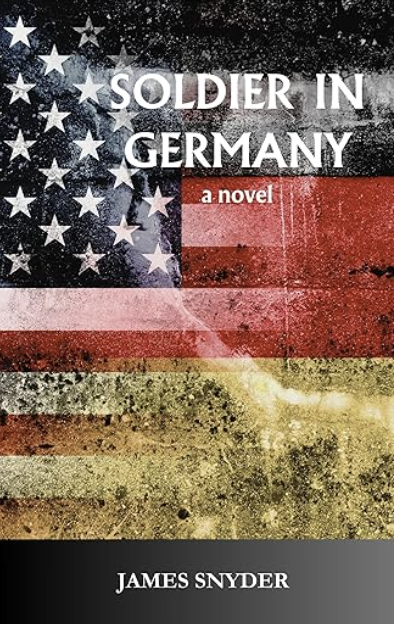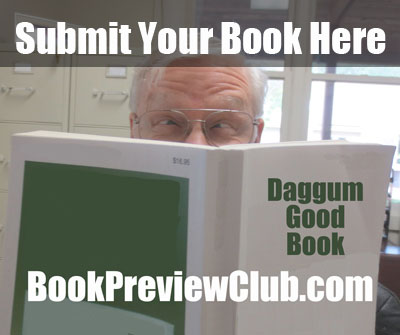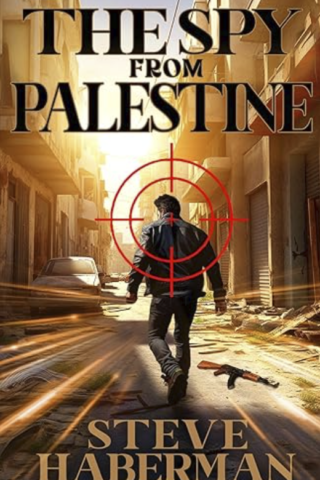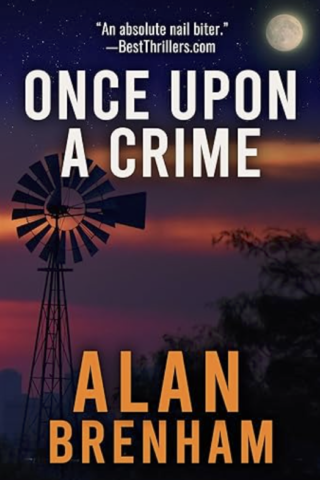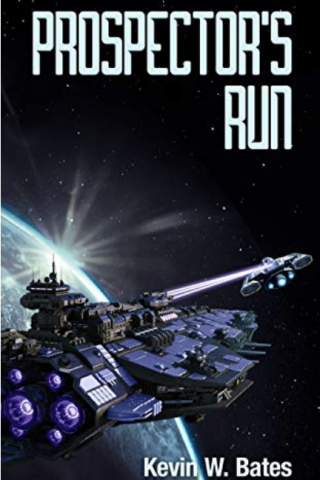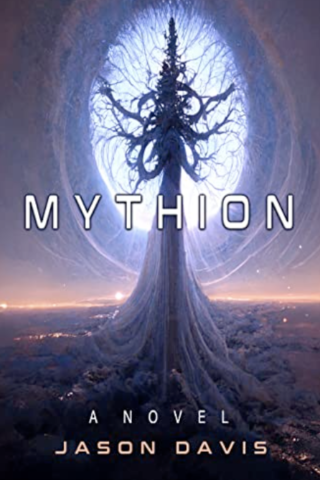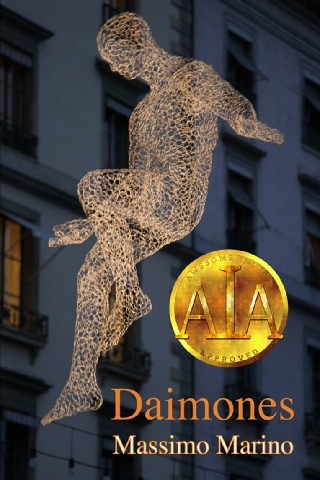
Description:
A deadly, silent invasion leaves survivors befuddled, wary, and broken. A First Contact and an Apocalypse with roots millions of years old.
Spoiler alert: there are no lycanthropes, vampires, zombies or postapocalyptic wastelands here. Mild sex scenes.
Death spread around the globe. Yet Dan and his family remain untouched. He begins to fear they are the only three people left alive on Earth. They are not.Efforts to survive and make contact with others reveal disturbing truths about the human extermination. Dan finds Laura who discloses even more. Her presence – a young, sexy, disruptive girl – adds questions about what is moral and ethical in this new reality.
Then supernatural experiences reported by other survivors force Dan to seek explanations from his own past. Memories of childhood hallucinations strike him with sledgehammer force, bringing him face-to-face with a secret millions of years old. Planet Earth is in the hands of an older power, one Dan never envisioned and dares not disobey…
“Even with the best of intentions, cruelty is just around the corner.“
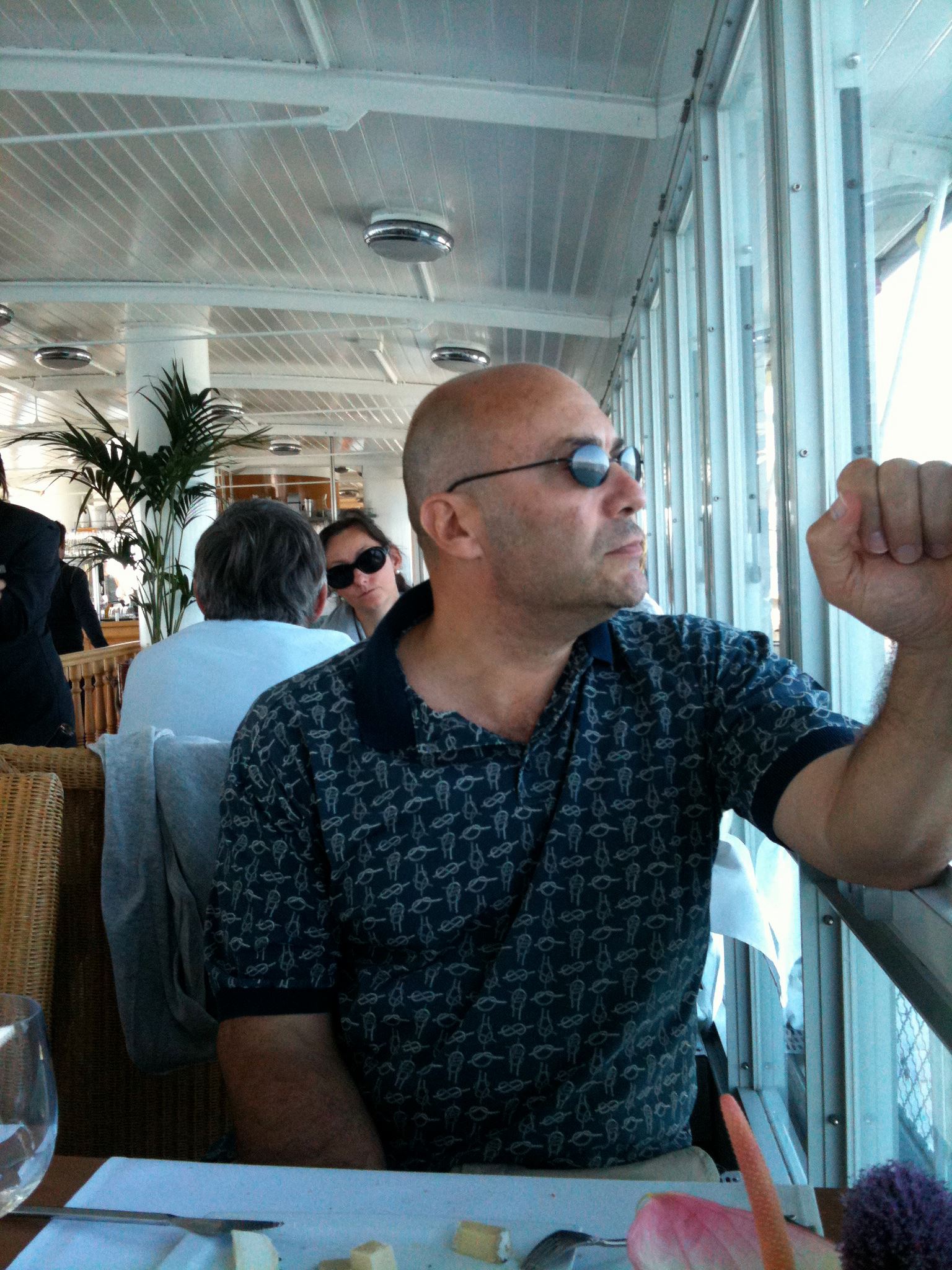
Massimo Marino
Daimones Trailer
Daimones Excerpt
Daimones
Vol.1 of The Daimones Trilogy
Copyright © 2012 by Massimo Marino
Book design by Massimo Marino, Author
Cover picture “Yalil Sculpture” © Boris Kester / traveladventures.org
Editor: Rebecca Stroud
All rights reserved.
No part of this book may be reproduced in any form or by any electronic or mechanical means including information storage and retrieval systems, without permission in writing from the author. The only exception is by a reviewer, who may quote short excerpts in a review.
This is a work of fiction. The names and the characters are fictional. Any resemblance to living or dead individual is purely coincidental.
ISBN 978-0-985-1438-2-4
–
Now available Once Humans, Vol.2 of The Daimones Trilogy
About the Author
Massimo Marino comes from a scientist background: He spent years at CERN, in Switzerland, and at the Lawrence Berkeley Lab, in California, followed by lead positions with Apple, Inc., and the World Economic Forum. He is also partner in a new startup in Geneva for smartphone applications: TAKEALL SA.
Massimo currently lives in France and crosses the border with Switzerland multiple times daily.
“Daimones” is based on people experience and facts with an added “what if” to provide an explanation to current and past events. It is his first novel.
If interested in more details about Massimo Marino, please see his full profile on Linkedin:
http://ch.linkedin.com/in/massimomarino
Connect with Massimo Marino:
Twitter:
https://twitter.com/Massim0Marin0
Facebook:
http://www.facebook.com/massimo.marino.750546
http://www.facebook.com/MassimoMarinoAuthor
On the Gods and the World
“These things never happened, but they are always.”
Sallustius
“Deorum naturae neque factae sunt; quae enim semper sunt, numquam fiunt: semper vero sunt.
Table Of Content
Warnings
The Purge
The News
The Dawn
Alone?
Routines
Ghost Town
Scouting
Others?
The Click
Epiphany
The Dots Connect
Laura
The Lab
Adapt
New Paths
Daimones
Humans
Prologue
Warnings
“Large numbers of animals have mysteriously died recently, from the thousands of birds found dead in two southern U.S. states to 100,000 dead fish in Arkansas. TIME takes a look at other mass animal deaths, the mystery of many of which is still unsolved.” Read more:
‘Over the first weekend of the new year 2011, thousands of red-winged blackbirds fell dead from the sky. Two days later, some 500 blackbirds dropped dead in Louisiana.’
‘March 2011: Approx. 1,200 penguins were found dead on a remote beach in southern Chile.’
‘April 2011: Millions of sardines washed ashore nearby. In addition, thousands of the rare Andean flamingo abandoned their nests in the north of Chile, leaving their 2,000 chicks to die in their shells. Even worse, no one could say concretely why these animals had died.’
‘April 2011: According to Francisco Nique, president of the Association of Fishermen of Puerto Eten, in the span of 10 or 12 days, 1,200 dead pelicans along 160 kilometers have been found between Punta Negra, in Piura, and San Jose creek in Lambayeque. Perú 21 press.’
‘October 2011: Thousands of dead waterfowl wash ashore at Wasaga Beach, Canada. The Star.’
‘January 2012: Dead herring mystery for Norway; locals left scratching their heads after twenty tons of the dead creatures are found on beaches in Nordreisa. The Guardian.’
‘May 2012: 60,000—100,000 dead fish found in three creeks in Maryland USA. Baltimore Sun.’
‘May 2012: Thousands of Mozambique Tilapia found dead since last week, experts blame pollutants in the river. Ironically, Mozambique Tilapia is considered as one of the most resilient species of fish, known to withstand unfriendly environmental conditions. Pune Mirror.’
‘May 2012: At least 2,300 dead birds were found along beaches between Cartagena and Playa de Santo Domingo, Chile. CNN International.’
‘May 2012: The Peruvian government reported 5,000 birds, mostly pelicans, and nearly 900 dolphins have died off the country’s northern coast, possibly due to rising temperatures in Pacific waters. Scientists scrambled to pin down what caused such a massive toll. AFP.’
— o —
Strange deaths had caused alarm among naturalists and environmentalists in all nations. Birds fell dead from the sky, fish washed up on shores and rivers across the whole planet, but people had other things to care and worry about. Mainstream media focused on economic crises, financial scandals, huge losses from banks, sovereign states at risk of defaulting in the Euro zone, the Arab spring, and the global war on terror.
Why the interest in bird and fish deaths: don’t they die every day? Such news was almost whispered as unimportant, or used as filler for a column on some inner page. Local TV channels sometimes reported the facts though as a strange and abrupt twist of the normal course of natural events: interesting—for a second—but nothing to see, move on.
Whoever tried to talk seriously about the animal deaths—trying to discover a pattern—was treated as a weirdo, a delusional simpleton seeing conspiracy around every corner. People reacted to the deaths with raised shoulders, regarding the unexplained quirk about the natural world as worth no more. Some even accused naturalists of trying to profit from the quirkiness to grab more funds for their research and projects.
Regardless, thousands of dead birds and tons of fishes had been found floating ashore, belly up, without any apparent reason. “The sky is not falling,” people said. Indeed it was not the sky that was falling, only previously live and healthy winged animals. Yet too many fell…well, they were just birds, weren’t they?
We had enough reasons to wonder what killed them, clear signs that something was seriously wrong. Initial investigations showed evidence of unnatural events, damage in the breast tissue, blood clots in the body cavity, and much internal bleeding. All major organs though were normal.
In some cases, acute physical trauma led to hemorrhage and death with no sign of any chronic or infectious diseases. Thousands of animals of the same species suffering a traumatic end all together—all of a sudden—around the world with no apparent cause or link. Concerted investigations should have started but nobody pushed for those. Instead, county veterinarians scrambled to provide plausible explanations. Results from preliminary testing had been released to the news by the Livestock and Poultry Commission’s Veterinary Diagnostic Lab. They showed birds, which fell by the thousands, dead from internal collapse—whatever that meant. No explanations were given as to what caused the massive traumas and why.
The Internet covered the deaths with genuine interest to look for causes. Threads and blogs were filled with plots calling for plans between the Zionists, Fascists, Falun Gong supporters, and aliens from planet Zark. Conspiracy theories soon killed all discussions and, in a sense, also prevented genuine forensic work to be conducted: What serious scientist craves association with lunatics wearing tin-foil caps?
Some officials started to release the first explanation at hand. They speculated on causes for the bird deaths ranging from fireworks, the weather, noxious fumes, chemtrails sprayed by airliners, or ‘sonic booms.’ Anything that could be used to put the stories to rest, and quickly. Some believed the birds might have been frightened to death by the blasts or killed by the scores in traffic accidents.
“We received information from local residents last night. Our main theory is that birds got scared because of the fireworks. Thus, they landed on the road, but couldn’t fly away due to the stress and were hit by a car,” one official explained to ‘The Local’, Sweden’s online news in English. The Sveriges Radio Skaraborg also reported the news and stated the birds had been found dead on the streets in Falköping, southeast of Skövde.
He added the animals likely had difficulty orienting themselves in the dark. That in itself would be news. No one talked much about the fishes, like the two million dead in Chesapeake Bay or the dead drums washed ashore along twenty miles of the Arkansas River.
People had more important issues to deal with; the world faced a period of great uncertainty and huge changes affecting everyone at every level. Global terrorism stopped us from seeing what was happening. In those months people were thinking of other things. Everyone wondered whether they’d be next in the vicious round of terrorist bombings and retaliations affecting every country in the world.
Who cared if some wild animals were dying when members of your own family might not come home that night? Humanity had missed its only vital clue. The link was there. We were the sapient species on earth, clever enough to connect the dots, no matter how far apart they were. We should have done our job. Connect them. We were too busy, too preoccupied with other facts to ask ourselves: What the hell is happening?
Nature’s red flags went unnoticed and animals—scores of them—kept dying. We kept living our own lives…
Part One
The Purge
No hint suggested the day would be any different from all others. I arrived at work as usual, after leaving my daughter at school. A too bright Monday morning and sunny for early February. The weather had been mild during the weekend, much warmer than it should for the season.
My wife, Mary, complained about the warmth, worried this would be no good for plants and the garden.
“See, everything is waking up. All the buds on my wisteria? The poor thing will become…well, hysterical if the temperature should drop—and it will—below freezing again.”
Indeed, those days felt like early spring. I liked that.
The whole winter had been harsh with average temperatures way below freezing. To leave home and take my little princess to school on my way to work was an exercise of will—even more so when my day started at 6:15 a.m. and it was still dark outside.
“I go to bed and it’s dark. I get up, dark…yet again! You know how it bothers me,” I told Mary every time she asked, “What’s going on, sweet pea? You’re pensive.” She still called me that even though it had been years since we were high school sweethearts and I’d played quarterback for our school team.
Thank the Lord, she never said it in public. No one protects a “sweet pea” quarterback or fights to catch his passes! And let’s not even think about the harassment from teammates.
Mary had just turned sixteen when we first met. Something of young lovers remained between us, even after thirty-two years, a twelve-year-old daughter, and life in three countries. We had an easy way to keep count of the time the two of us had spent together: ten years of dating, ten of marriage and then our first and only child. Total number of years? Twenty, plus our daughter’s age.
When I got to work, I waited as usual for the gate to open. I kept an eye on incoming traffic and made sure nobody came out at the same time. The gate was a solid slab of metal and it stood next to the guard house, a bulky construction with thick tinted windows and dark concrete walls. Sliding slowly on its rails, the mechanism paused barely long enough for me to drive through, reminding me this place was not meant for everyone.
I could never tell whether anyone was seated in the guard house or not. The first few times I passed that gate I wondered if I needed to wave good morning to some invisible man. Now I simply drove through, conscious of my right to cross the thin threshold separating those inside from the rest of the world.
I drove into the underground garage; my place, Number 98, waited for me the same as every morning. I had to cross another barrier before entering, had to swipe my badge and be greeted by the welcoming green light. A beep confirmed the security system recognized me. I went down the ramp slowly, giving the gate below time to open, enough to let me pass without having to wait. With the years, my timing had become impeccable.
Inside the garage, people had to drive at walking speed to reach their numbered parking slot. Mine was in the last row so I had enough time to realize something obstructed my place. I slammed on the brakes refusing to believe it. I raised my hand and hit the steering wheel in exasperation. For, I saw two wood crates sitting in the middle of my slot.
The underground parking also served as a reception area for the Publications Department. Slots in the middle section had been eliminated to give room to the storage areas where all deliveries received by the Pub’s colleagues were collected and where confidential publications were packaged for shipment. No one thought that arrangement to be efficient and sustainable. At times, I had to wait for small crate lifters to operate. A short wait but frustrating when colleagues waited for me at a meeting. Complaints to Human Resources and Logistics & Operations had so far produced no results. And now this.
I stepped out of the car to check whether any of the storage workers were around. At 8:10, the place was still rather empty. A few cars were parked in the garage that morning. For sure, they belonged to colleagues on business trips who were accustomed to leaving their vehicles there and taking a taxi to the airport.
The crates were empty. I could move them away or park somewhere else. I chose the first option since no one could see me move them. They weren’t particularly heavy. I only had to slide them a short distance, zero risk of injuries or other silly things like tearing my trousers or jacket.
Although I didn’t train anymore, my body still enjoyed the results of those past years of football practice—semi-professional level—and the task took only a few seconds: no sweat. I drove into my parking spot. Weird. Things like that were not supposed to happen as workers had a list of unoccupied places which could be temporarily used for storage rather than the ones assigned to personnel.
With my badge in hand, I walked toward the third security point to cross. I swiped it and entered the monthly code on the keyboard. Invisible eyes were witnessing and recording entries for that morning, the same as for every other day. The transparent bullet-proof glass doors opened and let me in to the buffer zone, a concrete walled box with a painted red little square on the floor.
The procedure asked for me to stand still on the red mark without moving while something or someone evaluated my credentials. I hated this last step. After all the security steps I’d gone through so far, hadn’t I proven my identity, my right to be allowed into the premises? Maybe guards now assessed whether I looked suspicious or dressed nicely enough? I almost questioned the invisible guard about those crates in my parking place but I hesitated. This was something to sort out with the Hospitality Team instead. They look after logistics and other annoying stuff.
Besides, if I moved or wiggled too much while standing on the little red square, the glass door behind would open and I’d have to go through the whole procedure again, suffer a lecture from the guard and waste even more time. I am sure they took pleasure in making us wait. I stood as still as I could…and waited. It took a few seconds more than usual and I thought to complain when finally a green dot appeared. I heard the welcoming beep as the opaque entrance glass doors—also bullet proof—slid aside and I was allowed in.
The view had always been spectacular, especially on sunny days. From the parking level entry, one accessed a hallway dotted with settees aligned along its gray walls. In front, a huge glass wall spanned the whole height of the building and showed a magnificent view of Lake Lemano and the mansions of rich Swiss and foreigners wealthy enough to enjoy the scenery from their large estates.
After a last glance at the glorious day unfolding outside the glass wall, I started down the stairs to reach my desk one level below. The entire organization believed in full visibility so, to foster collaboration and communication among personnel, it had no offices…just open spaces and vast halls filled with large desks.
No cubicles, a la North American style, but shared spaces in between with desks arranged in islands of four separated by panels with a transparent top-third. Though you couldn’t look at what your colleagues were doing, you had a clear view to establish eye contact; everyone sat in sight of everyone else. Hard to say whether this architect’s dream resulted in any real increase of communications between teams. I still have my doubts.
Entering the hall, I peeked to see whether my highest-ranked collaborator and friend, Rose, had gotten in already. We had an established tradition between us: the morning cappuccino.
“Hi, Rose. How’s it going?”
“As usual. The guys from Microsoft say they should be able to finish the sprint in time.”
“Good, good start for the day. Cappuccino?”
Sprint was the term used to describe the set of tasks to be implemented during a period of three weeks. I led and defined the effort for a major collaboration platform of the highest security. It included all possible technical bells and whistles, video conferencing, and social networking to support all the initiatives running worldwide with our constituents.
Highly confidential matters were discussed on our system, especially on the encrypted video conferences and we enforced an absolute off the records policy. Journalists and others, I am sure, would have loved to eavesdrop on what we heard those days, particularly Arab League discussions with the Americans.
Everything we did to support and enhance the platform was required yesterday and costs or efforts were never a factor. High pressure constantly, criticisms always abundant, congratulations scarce. The kind of demanding task and thankless job any sane person would avoid. How in the world I ended up in that trap is still an open question. Anyway, as the only director who had been able to herd the cats, we had released a working platform in spite of everything and within the agreed timeline. Not exactly Big Brother, but Orwell would be proud of us.
A few desks away, an American consultant sat, hired and imposed on the team to speed up the project and automagically solve all scenarios. He looked at his emails, showing no interest in our conversation or our whereabouts. The guy only knew one thing well and kept selling that as an IT panacea: A framework—and not among the best ones—to create websites. He advocated the solution as the ultimate silver bullet.
It proved no good for us; rather it had been the source of problems and discussions during many of the past months. Much time and money miserably wasted. Yet, somehow, he had secured the ears of our upper echelon bosses. Despite the lack of promised working prototypes, and even failing all tests and missing deadlines, he’d succeeded in imposing his view. A spin doctor, cum laude. Could not happen at a for-profit organization where pennies were counted.
“To a hammer, every problem is a nail,” we said on the team but we called him ‘the screwdriver’. We were confronted with stubborn nails and we needed a sledgehammer. Screwdrivers do not understand nails, so he wanted us to cut a slot on the head of every nail. Make sense? Of course not. He kept neglecting crucial details about the project, things like ‘nails have no threads’. We judged his solutions and vision as simplistic. There were other forces at play so our judgment didn’t matter at all.
When we came back from our cappuccino, the consultant—even though now formally hired he still acted as such—had left the place for unknown destinations. Surely busy with bending people’s opinions and buying support at every occasion. Grinding his way, or ‘screwdriving’ around, and forcing some head rolling in the process: move out of his way or get crushed.
The cell phone beeped: Time to start working and accomplish something, I thought. A message from the HR Chief: “Dear Dan, did you receive our meeting invitation?”
Our invitation? Who was he referring to? From the details, I had to be in the Board Room in five minutes…with him and the ‘screwdriver’.
“Rose, I just got summoned to an urgent meeting with Carl and Brad. If I don’t come back,” I said half-jokingly, “gather my stuff into a box, will ya?”
Rose looked at me with a worried expression. We’d had discussion after discussion covering the unsustainable situation we faced. The entire team, a group of twelve now about to arrive one after the other for their day of work, had envisioned every possible scenario involving changing jobs, projects, duty stations, or even resignation. Everyone expected me to prevent all this from happening.
I climbed the stairs to the level of the Board Room, thinking what would be my reaction if I had been shown the door. We’d recently had various meetings with big brass in the organization explaining why we were wasting our time and money, and had detailed the reasons, too. After which, we’d received orders to halt an evolving project in favor of some already failing chimera, a quick solution requiring very little budget and exceeding functionality: the typical silver bullet that would not work. So annoying.
To think that not a single person on the upper floors had any idea what silver bullets were. They do not exist in computer science, or elsewhere, but I hadn’t realized yet what strong external support the new hire had.
I entered the Board Room without knocking at the door. It was a large rectangular space with floor-to-ceiling wood panels; a grandiose oval table enthroned in the middle, capable of seating thirty people on leather chairs of the highest quality. Screens on the two long walls allowed for video conferencing. The side facing the lake had the usual glass wall overlooking the gorgeous scenery. The institution spared no expense on showy excess. It dealt with head honchos used to luxury and, thus, needed to impress as part of doing business with them.
Carl and Brad were already seated and Carl greeted me first. “Thanks for coming, Dan. Please have a seat.”
“Hi, Carl…Brad.” Now I didn’t doubt what the meeting was for that early in the day: I knew the answer but I asked anyway. “Is anyone else going to attend?”
“No, just the three of us,” said Carl, “and allow me to get straight to the point…”
I interrupted him. “Brad is here so I think I can guess why we’re meeting. Brad and I have divergent visions on how to proceed and toward which goals.” I grinned. “I am surprised this comes right after some recent proof of the weakness of his proposed solution.”
I didn’t even look at Brad. I cared only for Carl, with whom I had frankly exchanged opinions about the whole thing.
Carl went on describing how everything in the institution should perform as in a Swiss clock. All parts and wheels contributing and turning in unison so that the mechanism could do its job. I had been a great wheel so far but I didn’t spin with the others anymore.
An overused analogy and often strident with reality: the clock ticked before hiring the help so Carl threw out the baby with the bathwater. He seemed to recite from a spin doctor’s book. He kept talking, not sounding convincing at all, or even like he was convinced himself. He came to the conclusion of his speech.
“The Board has decided to terminate your work contract with us. Your last day of employment will be on the 31st of May, in accordance with the legal requirement outlined in the staff handbook. So as to provide you with as much time as possible to plan your future steps, we agreed to free you from any obligation to work until your legal termination as of today. We confirm this does not affect your rights to your salary through the 31st of May as well as a prorated 13th salary bonus and holidays not taken during the period. You will find more details in here.”
Carl handed me an envelope which I took without looking at it, smiling.
In a way, I felt relief. All these months seemed like fighting against windmills. The issue had nothing to do with aiming at a better platform. Someone wanted to achieve a firm stance in a power struggle which had begun in the previous months. The COO had been forced to leave only weeks before. I acted as his right arm in many initiatives, besides the one I led. I’d become an impediment for someone higher up, refusing to put lipstick on pigs.
Carl raised his eyebrows and caressed his chin. The hint of a smile raised his lips. “You’re reacting way better than I guessed. This morning, I tried to imagine how this meeting would unfold and nothing I could think of comes close to this. Are you…happy?”
“Look, Carl…” No one paid attention to Brad, who kept watching Carl and me having this conversation, acting as if he wasn’t in the room or had nothing meaningful to say. Probably the latter.
“We both know what is going on in here. We’ve discussed this endless times.”
I clenched my jaw and clutched the sides of the chair fighting the urge to stand up. I sighed. “We, nope, you guys will waste even more resources. I can’t tell you how painful it is to deal with this nonsense we are forced to pursue. It is not going to be my problem anymore and that is a relief, believe me.”
The meeting had undoubtedly come to an end. No further discussions needed, a scenario played already. Brad left the room without saying a word while Carl and I remained seated. When alone, Carl was more sympathetic.
“What are you going to do now, Dan?”
“I’ll go home, relax, cure the acid reflux afflicting me these past months. Remember my words, Carl. At the next Global Meeting, there will be no system to show. Ours, de facto, is to be wiped out and retired. The new one will be recycled to do something else, much smaller in scope, less ambitious. Unable to work as intended or reproduce what we did so far. It falls short now, it will fall short then. At most, you get a new website.” I laughed bitterly. “The most expensive website ever with a newly hired CTO to act as its webmaster. Congratulations.”
Carl grinned and did not argue. “I need you to go through some formalities…”
Everything fit now, the parking place occupied with the wood crates; the delays in passing through the gates. Security knew that today I would have only a virtual presence on the premises.
“Your badge is disabled by now.”
How predictable. Poor Rose, I thought. She had to collect my stuff for me and put everything in a box. The rest of the list was quick: email account, the blackberry, various cards…
“We need those now. I am sure you understand.”
Of course I did. Badge, corporate credit card. I also handed him the lunch card. “I have still some 100 Swiss Francs on it. I guess you’ll be able to credit that to my last paycheck?”
“No problem.”
Carl chatted with me all the way to the coat room. Then he walked me straight to the employee entrance at the garage level, making sure I would leave without incident and without talking to anyone. Still early in the morning, the entire meeting lasted no more than ten minutes; employees were arriving and starting their work day. No time for goodbyes. No one noticed.
“Is the Chairman in? I’d like to say goodbye.”
“He’s traveling. I’ll tell him.”
“I see. Well, nothing holds me here now. Have a good one, Carl.”
The sliding doors opened and I reached my car while texting Rose on my iPhone. “Rose, get that box. I’m fired. Leaving now. Talk to you later.”
“WHAT!!!!” I read her shocked answer, immediately received.
I repeated, “Talk to you later.”
I had mixed feelings. Had nothing to blame myself for, had done everything right. I refused to oil squeaking wheels or lick boots. If something was wrong in the project, I frankly reported all risks and listed the reasons why, too. I never took offense or grew angry over constructive criticisms, always considered the facts, trying to never get personal. And it led me to this end result. We were in a world where facts were being ignored and trains were leaving the stations, speeding up toward… Nothing.
The News
I left the site for the first time in years without any of those technology gadgets that made sure ‘leaving’ became a word devoid of its original meaning. We had to be always in touch with the organization and reachable 24/7. I went through the last moments in an aseptic mental state; the germs of anger, frustration, revenge, and disdain had yet to get hold of my emotions. All considered, was it not for the best? Weren’t anger, frustration and disdain exactly the feelings I’d fought daily for months?
I was used to waking up almost every night—or should I say morning—around 4am, my brain boiling with mixed up thoughts of work , one after the other. Revisiting all details, all discussions, all options over and over again. Worn out and stressed, I might have ended up with a bleeding ulcer before much longer. Now, the cause of all that had disappeared from my immediate future.
With these thoughts still lingering, I searched for an area to safely pull over the car and call my wife. She needed to know, no reason to wait to announce that later today. I’d read news about tragedies related to job losses where the facts had been hidden from family for months, creating a spiral of lies and leading to the worst. Not in this case, I repeated to myself as I had nothing to be blamed for. I had accomplished my tasks and carried out my duties with diligence and professionalism. I didn’t need to hide anything.
Unfortunately—in today’s business environment—that didn’t enhance your job security.
I signaled a left turn and entered the parking lot of the nearby golf course. One of the most exclusive and expensive clubs in the region, but I never played on its old, majestic course. ‘Private. Members Only’ the sign said. I had been for business lunches a few times at their restaurant. Once, I thought I had a chance, however slim, of getting close enough to one of the members to be invited to play a round someday. Now that probability rapidly spiraled down to zero.
Stopping the car, I listened to the radio still providing local items of interest, soon to be replaced by national news. World News Geneva, the only English-speaking channel in town, broadcast hourly bulletins directly from London. The program listed the crude violence of recent days.
In Libya, word came of an alleged systematic purge of pro-Gaddafi loyalists as entire villages emptied and all inhabitants disappeared. Street fights increasing in Athens between civilians and police and army forces; the government announced tougher measures. Italy, on the brink of economic collapse, became the stage for rough protests with anarchist connotations.
In Syria, the city of Homs was still under bombardment from the loyalist forces committing atrocities against its own people. President Assad denying the allegations; world news and the Arab League supporting them. The Arab Spring seemed on the verge of turning into a rather Hot Summer of violence and death. In the US, the run for the Presidency inflamed hearts and captured all comments and attention. After a moment of hesitation, I pulled out the iPhone from my jacket and dialed home.
“Hello?”
“Mary, it’s me…” I hesitated, unsure how to continue.
“Hi, love. I’m about to leave for school. What’s going on?”
I decided to be blunt. “I’ve been fired. They will pay me three months salary and they don’t want me in the game anymore.”
Silence. I expected a reaction, a gasping sound, a ‘gosh’, anything. Not total silence.
“Are you there?”
“Yes. Catching my breath. Dan, what are you going to do? What are we going to do?”
Heard that before, hadn’t I? “I’m coming home. Will I find you?”
“No, I’m going to school. My students are waiting for their lesson. I’ll come home when I finish.”
This time, it was my turn to stay silent. Mary is stoic, always has been. Even in this moment, while other women might go ballistic, she stayed resolute, her mind set on urgent things to do. I loved her so much and her strength was also mine.
“It’s going to be all right. In one way or another.”
“I know. Need to go now. I love you.”
“I love you, too.”
The dial tone signaled the end of the conversation.
The radio announcer still reported facts and events of the day. “… all penguins make considerably shorter treks to the sea in December or January and spend the rest of the southern hemisphere summer feeding in warmer waters until March. Chicks begin molting into juvenile plumage from early November, which takes up to two months. Often, the process is not completed yet by the time they leave the colony and the adults cease feeding them.
“It is believed the entire colony perished during what are normally extremely favorable conditions for each individual: warmer temperatures and an abundance of fish. Experts rule out that thousands of Emperor Penguins may have died of natural causes. Captain Ryan from the Queensland Department of Natural Resources and Mines, which also monitors the Australian Antarctic Territory, had this to say: “This is something totally abnormal and we have no records of similar events in the past, even on a smaller scale. If they succumbed due to some sort of epidemic, we fear we could soon discover other decimated colonies. It is too early to come to any conclusion.”
Wow, I thought. This is crazy.
I turned the engine on, heading home. In my ears, I still heard Carl’s voice telling me the Board had decided to get rid of me and yet I couldn’t avoid thinking about what I just heard on the radio. What might be the cause of all those deaths? Pollution? Poisoning? Heavy metals in water? There had to be something responsible for thousands of sudden casualties. An entire colony? Adults, females, chicks, no survivors. Pollution and poisoning did not fit.
I made my way into the remaining traffic flow of early morning, past the rush hour of commuters reaching their work place. Something, I realized, I won’t do anymore. My mind had started to catalogue all the implications of what happened.
The radio anchor again grabbed my attention as I drove along the winding road down the hills toward Geneva.
“… the eminent gorilla specialist, George Schaller, tells us that the population lived in the area north and northwest of Lake Tanganyika. All three gorilla subspecies are listed as endangered by the U.S. Fish and Wildlife Service and by the Convention on International Trade for Endangered Species. Schaller calls this is a natural disaster of immense proportions. The gorilla individuals—hundreds of them—have been found dead in various areas by members of the Diane Fossey Gorilla Fund International. Though no signs of gunshots or wounds are reported, all present evidence of physical trauma and distress. A representative of the Fund said it is too early to attempt providing explanations now and that a full investigation will be conducted, adding, “We are deeply saddened by this tragedy…”
The news was interrupted because of a declaration about Syria just released by Secretary-General Ban Ki-moon to the General Assembly of the UN. Declaring Syria to be in a condition of civil war, he said, “We continue to receive information about summary executions, arbitrary arrests and torture,” adding that, on Thursday, “loyalist forces launched a broad assault against the city” and “civilian casualties were heavy. Homs, Hama and elsewhere have seen brutal fighting with civilians trapped in their homes, without food or electricity, and with no possibility of evacuating the wounded or burying the dead.”
I had just been fired but others in the world definitely lived in a more dire situation. Is there no end to the killing? I thought. The news went on with other reports about Greece’s social upheaval due to the economic crisis and the escalation of violence and unrest in Italy, which faced a huge sovereign debt and unsustainable interest payments to the international community. People were getting into open confrontations with the police and the Carabinieri—a military branch of the Italian Army with civil security duties.
I drove through the town in a trance. My mental autopilot would take me home while I was distracted by all sort of thoughts: the loss of my job and income, civil unrests, deaths of both animals and men. Everything is relative, nothing is important. Crucial only if touching you directly. No hard feelings, no strings attached, just life as it is and always has been.
Soon I reached the outskirts of the city. CERN, the European Laboratory for Particle Physics, stood as the last urban outpost before the national border with France. No agent staffed the customs station since Switzerland had joined the Schengen Area which comprised the territories of twenty-six European countries.
The Area operated very much like a single state for international travel—border controls for those traveling in and out of it, little to none for all internal trips. Only sporadic patrols were seen at larger state borders.
From there, a short ride led to our house. I got onto the expressway that saved me from having to go through every village along the way. The expressway became frustratingly congested at rush hour with commuters caught in bumper-to-bumper traffic as they crossed into Switzerland to reach their work places in town.
Geneva businesses constituted the largest pool of jobs for all people in the nearby French border zone and the town itself was the biggest factor contributing to the high standard of living in the region. This part of France would have been deeply rural and economically deprived if not for the City of Calvin. Every day, tens of thousands of people commuted between France and Geneva. They worked in town, had leisure time, and went back to France to sleep at their homes.
I pulled into the driveway, got out of the car and manually opened the iron gate. It was supposed to be automatic. As time passed by, neither Mary nor I had felt the need to put the mechanism in place. We’d bought the old place when we moved here from America. It was something in between a farm and a village home. We had renovated everything while maintaining the ancient character wherever possible, conferring a peculiar charm to the property. Old and new interlaced harmoniously, marrying different styles and materials with always a subtle contrast that made the house warm and cozy and…homey.
We liked this place, Mary and I. We’d put so much of ourselves into it. The colors, the tiles, the plants in the garden. A nice piece of land with some twelve thousand square feet of grass, bushes, fruit trees, and an olive tree growing in front of the terrace, a tree considered holy in ancient Greece. We’d planted the tree soon after acquiring the property, not knowing whether it would survive the frigid winters common in the area. It did, and majestically so. We took that as a good omen.
Will olive holiness protect us from this, too? The disturbing thought that we could be forced to sell the house struck me with the power of a sledgehammer blow to my chest. The first gut-wrenching reaction to the little speech from Carl, an hour before. No! I would prevent that from happening at all costs.
Costs, right; I had to think clearly about the necessary and unavoidable expenses and what could be cut or reduced from now on.
I headed for the front door, pulled out the keys and fumbled a bit with them. I felt like I needed a coffee, or something stronger. I managed to open the door; the alarm welcomed me with its three-tone beep, the first three notes of the US anthem. I reached the keypad and entered the code. The house was submerged again in silence, Mary already at school. My throat was dry. I went to the kitchen, the room my wife liked the most as she had personally designed the large trapezoidal island for all her culinary adventures.
The kitchen was warm, welcoming and full of utensils. Mary had always been a terrific cook. Keeping in shape was a remarkable achievement and a source of astonishment, but I was motivated by a dose of criticism from Mary. She was always telling me I ate too much. To which I invariably replied, “It’s not my fault, hon. If you were a worse cook, I would enjoy eating less than I do.”
I noticed a small note on the stone counter.
“Don’t worry. We will make it through. Together. Love you.”
Yes, of course we would, though how and when were still two open questions. I took a mug, put a new capsule in the machine and started brewing a coffee. The smell was much better than the noise. At least the coffee was good and a warm mug is always comforting.
I went upstairs. Our house had three levels, the top one being the result of a massive renovation job. We’d had the roof raised enough to get a full additional floor, gaining almost a thousand square feet of living space, and it was great. Mary and I enjoyed the entire upper level as our quarters; bedroom, dressing room, bathroom, and home office.
On the middle floor, we had our family room with the TV set, a small storage unit, and our daughter’s bedroom with its own bathroom. At twelve, she had started to ask us to respect her privacy; she’d even got herself a sign for her door with Keep Out on one side and Please, Come in on the other. When at school, the sign was in her room. She did not use it often, and we took care to always knock if she had the door closed.
I sat on the couch and switched on TV, looking for some news reports. I hopped from one channel to another, the usual cocktail of CNN, BBC News, France 24, Rai International, Al Jazeera. Most were covering the recent election win for Vladimir Putin; with a landslide vote, the old KGB apparatchik had again retained full power and the Kremlin.
Changing the channel once more, France 24 reported the deaths of Mountain gorilla colonies. The causes of death still very much of a mystery, all gorillas presented bruising and blood in their soft tissues. Rangers had started to collect evidence and testimonials. Some local people reported seeing strange lights, or luminescent shapes, not far from where the gorillas had been found dead. Other witnesses heard rumbling sounds like thunder, though no meteorological events of any relevance had been reported in the area.
Officials concurred the deaths of the animals were a malicious act and promised a full investigation would be conducted to find and bring to justice the perpetrators. A veterinarian from the Mountain Gorilla Veterinary Project confirmed that, in the past days, locals had whispered among themselves about lights in the shape of a sideways capital “T” up in the flanks of the Virunga Volcanoes. They considered them the cause of the gorilla deaths. The veterinarian also specified that some elders said the watu wa mwanga—which could be translated from Swahili as people of light, or from light—were responsible. This information had not been verified independently.
I changed to RAI 24 International: the news focused on another mass bird killing, “… for the last five days, wildlife experts and officers from the forestry commission have picked up more than 1,000 turtle doves as well as other birds, including pigeons. Yesterday alone, 300 corpses were recovered, all of them having a blue tinge to their beaks. Scientists say this could indicate poisoning or hypoxia—a lack of oxygen—which could confuse animals and lead to death.
“The incident in the town of Faenza in northern Italy comes after a series of similar cases and, more recently, in the United States and Sweden. Birds were not the only species to be affected. Millions of fishes also washed up on river banks and coastlines. The turtle dove case is the largest incident to have hit Europe so far. In Sweden, 50 jackdaws were found dead. Italian officials said they expected results from forensic tests on Monday.”
“Let’s hope it is poisoning or an illness, and not a sign that the world is coming to an end,” the announcer said half jokingly. “Tests are being carried out on the bodies by the local forestry commission. Results should be available as of next week, but it is the numbers that make this such a notable event and for the moment it is a mystery.”
Although I had never put much stock in apocalyptic conjectures, many people were deeply affected by fear. According to many (false) prophets regarding the recent reports, life on Earth would end soon. Something to do with the Mayan calendar, I recalled. December 21, 2012—the Northern Hemisphere’s winter solstice—would be the last day.
Scenes with religious fanatics carrying posters urging people to repent because “The End is Nigh” had always been common. These animal deaths were adding fuel to such foolishness. I recognized the streets of Berkeley, California, where a group of individuals distributed leaflets to passersby and a large sign with huge letters filled the TV screen long enough for the announcer to read it through:
“The word of the LORD that came to Zephaniah son of Cushi son of Gedaliah son of Amariah son of Hezekiah, in the days of King Josiah son of Amon of Judah. I will utterly sweep away everything from the face of the earth, says the LORD. I will sweep away humans and animals; I will sweep away the birds of the air and the fish of the sea. I will make the wicked stumble. I will cut off humanity from the face of the earth, says the LORD.”
The news went on with other facts. Frustratingly, every one of them involved violence, fights, clashes and more deaths. This time, causes were identified with no ambiguity: bullets, bombing, and the general hatred human beings seem genetically armed with to inflict the greatest pain and suffering upon one another.
I switched off the TV. “Sweep away the birds of the air and the fish of the sea. Sweep away humans and animals.” Now, that is a grandiose plan, I thought. The context did not matter to people who died in bloody conflicts, but God had spoken specifically to Judah and the officials of Jerusalem, not to us living in the 21st century. Still, I have to say it was an enthralling conjecture and a very special case of connecting the dots. No doubt, everyone would be astonished by the inordinate amount of dead wildlife, especially the gorillas, an animal so closely related to humankind. Investigations into the cause wouldn’t stop Bible scholars or would-be prophets from making doomsday claims, but in my opinion, we ought to ask ourselves how we were provoking such natural disasters.
I decided to Google those animal deaths because I needed to think about something other than the morning chat with Carl and my ensuing loss of employment. What I found startled me. My little online search revealed, and for 2010 only, reports of not less than eleven strange mass deaths of animals. Thousands and thousands of birds and tons of fishes, mostly in the US.
For 2011, the situation was not better. On the contrary, fifteen unexplained culling of birds and fishes now reaching locations in Europe, too. 2012 seemed to have started in high gear with more evolved animals being victims of something killing them in a quite unpleasant way. Whatever the cause, it had escalated.
With a jolt, I noticed the clock: 4pm. Time to go pick up Annah at school. Annah, our 12-year-old daughter, attended the International School of Geneva. When she was three, we chose that school because, at the time, we were still planning to go back to the US. Our goal was for Annah to receive an education in English and a good one, too. Our choice turned out to be the perfect one, welcoming children from the youngest ages through diploma years.
Years back, I’d worked as a scientist with the Lawrence Berkeley National Laboratory amidst a happy staff. As a physicist interested in computer science, I found my turf: fundamental research with lots of computing. I had the feeling I spent my time playing rather than working.
Life in Berkeley Hills and at the lab had been a memorable experience. The weather was pleasant, colleagues and friends were caring, San Francisco a town I fell in love with. We had friends in California. Tony Bennett sang “I Left My Heart in San Francisco”—as I learned—for the first time at San Francisco’s Fairmont Hotel in the famous Venetian Room. Mary and I had been there a few times and dined in the hall, with its crystal chandeliers and bronze marble columns. Whenever I traveled back to the City by the Bay, I felt like I was going home…much to Mary’s dismay, for she judged herself as European as anyone could be.
Our families were from the old continent, and Europe is far away from California. Even with computers and telephones, the nine-hour time zone difference made you aware of the distance in a profound and acute way. After our daughter’s birth, the separation became intolerable. Sending pictures and the frequent phone calls were not able to fill the gap and ease a longing for our families. When the US Lab proposed a rotation of personnel to the CERN labs in Switzerland, I added my name to the list to spend two years in Geneva, allowing for easier contact with our relatives. At least for a while.
Science was devoted to building massive apparatuses with such crushing images like modern cathedrals of molten iron and slabs of lead to demonstrate the world rested on infinitesimal entities and twined dimensions of an ephemeral reality. Scientists pursued the poetry of the invisible, the poetry of the infinitesimal unexpected possibilities.
The two years became four, then five, and life took precedence with its own plans; other job opportunities came along, then the malicious and evil 9-11 attack. We never went back to live in the US. I always remember John Lennon’s words, so true in cases such as this: “Life is what happens to you while you’re busy making other plans.” Life indeed had other plans…for everyone.
— o —
I arrived at the school around 4:30pm when students gathered in front of the main entrance. I only had to wait a couple minutes for Annah to show up. At twelve, she had started to go through a full transformation, the child leaving and making way for the young woman to be. Annah takes a lot after her mother and people say after me as well, though I know better.
She glanced around quickly in search of either my car or me and a smile rose to her lips when she saw me standing near our Volvo. A mute “hi, Dad” was followed by a hand wave, then she started walking toward me. I decided then to hide from her what had happened that morning. Mary and I needed to discuss it first, figure out clearly all it implied for our life. Annah would be told at the right moment—and this one, with her beautiful smile—was definitely not a good one.
“Hi, Dad. How was your day?”
“Fine, sweetie,” I said, giving her a kiss. “And yours?”
The ride back home was uneventful, our usual conversation taking place. I liked to take our daughter to school and pick her up whenever possible. With our schedules, we were all together only during breakfast and at dinner. Those rides with Annah allowed me to share some time with her every day.
Annah was remarkably open with me about all that went on in her world. Her student life, her friends, the recent discovery of the existence of boys, and the first parties held by the school itself in the large gymnasium. I loved the privilege when Annah asked me how to tell whether a boy was in love with a girl. A hypothetical boy, of course, whose name varied from William, Victor, Robin, Lee… and a hypothetical girl named Annah.
How long would she keep me so much a part of her life? When we reached home, the gate was open and Mary’s car was in the driveway. I parked next to hers. By the time we got out, Mary appeared on the door step with the most incredible smile ever to greet us. “My loves,” she said, coming toward us.
She embraced me, then Annah, who drove us back to reality.
“Hi, Mom! I’m hungry. Can I have a snack?”
We walked into our home together.
— The Beginning… —
The Daimones Trilogy continues with the Vol.2, “Once Humans”

